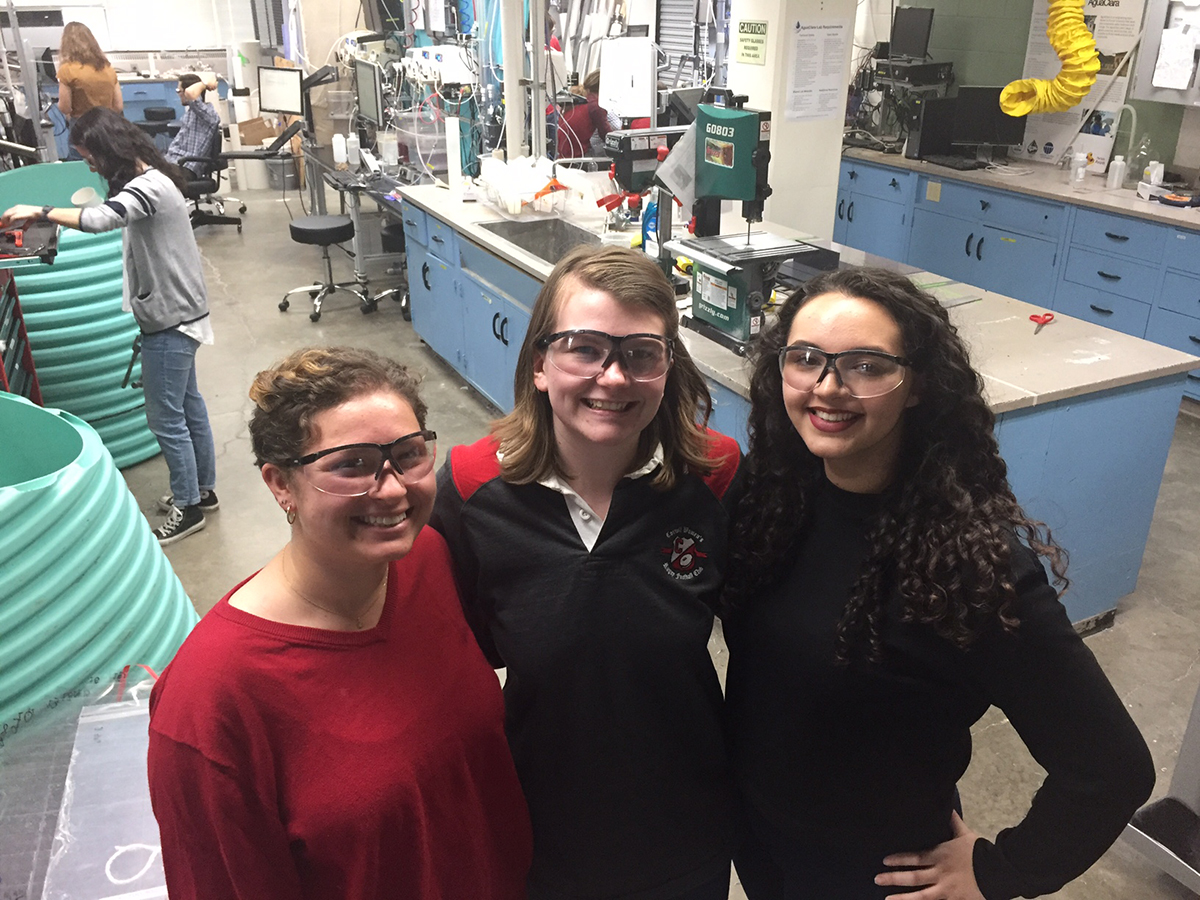‘Servant-leader’ role suits Weber-Shirk, AguaClara program
‘Servant-leader’ role suits Weber-Shirk, AguaClara program

Monroe Weber-Shirk is the founder and director of the AguaClara program at Cornell, which has brought clean drinking water to approximately 65,000 people in Honduras over the last decade.
But his title does not mean that Weber-Shirk is calling all the shots. Far from it.
The current model for the highly successful service-learning program has evolved over the last few years, and his role has become more “suggester-in-chief” than head honcho. Much of the heavy lifting involved in the smooth operation of AguaClara falls on the students themselves, especially the three “team leads,” who oversee the group of around 60 students.
“Knowledge is no longer flowing down from professor to student – it’s primarily flowing student to student,” said Weber-Shirk, senior lecturer in civil and environmental engineering. “I’m providing guidance, but I’m no longer the source of knowledge. I’m a source of knowledge.”
The team leads oversee the research advisers, each of whom leads one of 19 research teams. The three-person teams focus on individual aspects of AguaClara – everything from filtration to public relations.
“We pretty much do everything,” Erica Marroquin ’18, an environmental engineering major in the Department of Biological and Environmental Engineering (BEE), said of the team leads. “Monroe will give us ideas and suggestions regarding fundraisers and presentations, and we do everything for it. We work a lot with our public relations team, we have a team lead [Natalie Mottl ’18] who does a lot with outreach and things like that. Pretty much, it’s all us.”
Zoe Maisel ’18, an environmental engineering major in BEE who’s in her second semester as a team lead, said it’s empowering to everyone involved that the learning takes place in a lateral direction rather than from the top down.
“I’m learning from my peers, and we’re guided by Monroe,” she said. “It’s not like he decrees something and we go along with it. We’re driven by the common understanding of what we’re trying to do, but how we get there is very much up to us.”
Mottl, who’s a civil engineering major in CEE and is in her fifth semester with the program, admitted to having struggled with the cooperative nature of the learning environment early on.
“I’d never sat down and looked at a problem and said, ‘How do I solve this problem by myself, with no instruction?’” she said. “Usually you see it on a projector and in a textbook, and then you write it down. There’s no textbook for this.”
AguaClara: Sustainable Water Supply Project is a three-credit course listed in the university’s Community-Engaged Learning Course Guide. Richard Kiely, a senior fellow for program evaluation in the Office of Engagement Initiatives, said AguaClara is an “exemplar” of Engaged Cornell in terms of service learning and community involvement.
“The long-term commitment of faculty leaders like Monroe and students who have participated in the program over the years, to making the world a better place through building meaningful relationships across borders … is simply awe-inspiring,” he said.
AguaClara has changed countless lives – and not just of the thousands of Hondurans who can now just turn on a tap and get clear water to drink. Students’ lives are changed, too – especially after a two-week trip to Honduras, which Weber-Shirk leads every January, to visit the facilities his program has helped build and stay with the people whose lives have been made better.
“They are a lot more aware of the incredible privilege we have,” he said, “to assume that you can turn on a tap and get safe drinking water. There’s also this recognition that we have so much in common, even with people who live in very different situations from us.”
This article is written by Tom Fleischman and was published in the Cornell Chronicle on March 16, 2017.
